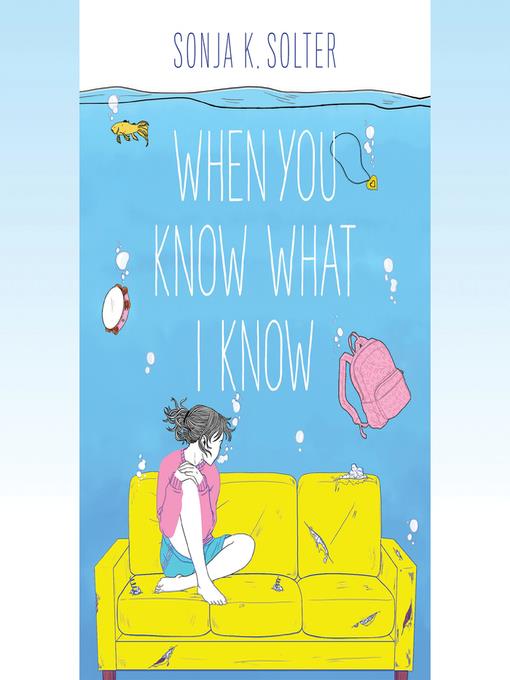
When You Know What I Know
کتاب های مرتبط
- اطلاعات
- نقد و بررسی
- دیدگاه کاربران
نقد و بررسی

December 15, 2019
A 10-year-old suffers, endures, rages, and heals after her uncle molests her. When Tori turned 8, Uncle Andy gave her a hamster. But when she's 10, he sexually abuses her in the basement. The single act happens right before Tori opens the first-person, free-verse narration by telling readers that once you know what she knows, "you can't / not know. / In your face, / under your eyelids." Solter emphasizes the emotional effects both of the molestation and of the disparate reactions she encounters when others hear about it. At first, Mom doesn't believe Tori, compounding Uncle Andy's atrocity and giving Tori a terrifying "whooshing-wave- / of-fire-and-ice-cold" in her body. She hears humming and buzzing inside her head. But her 8-year-old sister is (surprisingly, but believably and vitally) present for her, as is her best friend when Tori--after distancing for a while--steels herself to tell her. Tori's arc is about healing, her free-verse story more a sketch than a fleshed-out deep dive, but it never skirts the big things: emotional suffocation, powerlessness, silence, anger, and recovery. Tori goes from wanting to "shatter" her own face and "dead eyes" to feeling the approaching summer beckon her, "hopeful / that I'll join it / with all of its Maybes." Race is unmentioned; Tori appears white or light skinned on the cover. This offering of hope after trauma is, importantly, unromanticized. (author's note, resources) (Verse fiction. 8-14)
COPYRIGHT(2019) Kirkus Reviews, ALL RIGHTS RESERVED.

March 1, 2020
Gr 3-7-When you know what Tori knows, you can't look at yourself in the mirror. You can't tell anyone what happened, because you feel embarrassed and ashamed. When Tori finally tells her mother what her uncle did to her in the basement, her mother initially does not believe her. Tori feels simultaneously betrayed and guilty, because Uncle Andy was her babysitter and her mother can't afford another. Tori's mother ultimately believes her, but the sexual abuse permeates every part of the girl's life, impacting her friendships, school, and everything she previously enjoyed. Family dynamics become strained, with her grandmother defending her uncle and her newly remarried father blaming her mother for putting Tori in a dangerous situation. Set just after the abuse, the novel does not specifically describe the experience but focuses instead on the impact and the way others respond. Solter's writing is at its strongest when Tori navigates conflicting emotions. When other survivors of Uncle Andy's abuse come forward, Tori feels validated, then remorseful for feeling glad. The first-person perspective and novel in verse style viscerally convey Tori's raw feelings. The poetry is initially spare, mirroring Tori's emotional state, but it evolves into more expansive verse as Tori processes and begins to heal with the help of a therapist. VERDICT A difficult but important read, giving a voice to sexual abuse survivors and helping others see the complexity of emotions and the hard work that goes into the healing process.-Juliet Morefield, Multnomah County Library, Portland, OR
Copyright 2020 School Library Journal, LLC Used with permission.

February 15, 2020
Grades 6-8 Solter composes a sensitive and age-�appropriate narrative told in verse about childhood sexual abuse in her debut. As she deals with the aftermath of sexual abuse from her uncle, Tori doesn't know where to turn?especially after her mother expresses disbelief that Uncle Andy could do something so terrible. As the event impacts relationships with her sister, extended family members, and friends, Tori grapples with what to do. Solter folds in common experiences for survivors of sexual abuse, such as feelings of embarrassment and isolation alongside the unfortunate lack of support that some survivors encounter. With a voice that captures the perspective of a 10-year-old pushed into a situation beyond her years, Solter balances the life-altering event with minutiae of the life of a fifth grader, including a missing pet, the precarious nature of adolescent friendships, and the perils of school-lunch politics. An essential pick for mature fans of Raina Telgemeier and children looking for a reflection of their own traumas.(Reprinted with permission of Booklist, copyright 2020, American Library Association.)

























دیدگاه کاربران